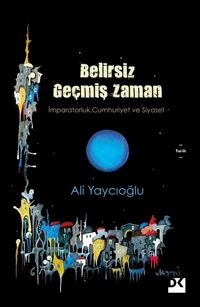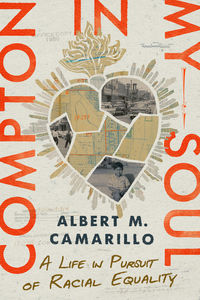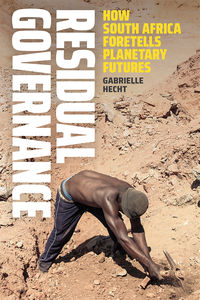Event Funding & Support Requests
We organize workshop series, graduate student reading groups, and classroom visits in order to advance research, teaching, and community-building in History Department at Stanford University. In addition, we provide funding for workshops, conferences, and stand-alone events organized by History faculty in collaboration with other Stanford units.
To request funding or nominal (no-cost) co-sponsorship for your Stanford event, please review the information below and submit your proposal at this link.
Sponsorship Categories & Application Deadlines:
- HISTORY DEPARTMENT EVENTS:
The Department provides funding, logistical support, and staff time for the following types of events. Five types of events are supported:- Workshop Series are led by History Department faculty members and usually in collaboration with History graduate students. They bring together Stanford History affiliates to present and discuss their ongoing research. Sessions may include presentations by external speakers. Workshops are expected to meet at least 3 times per academic year. The Department provides up to $8,000, processes reimbursements and purchases, and offers guidance on event planning and execution . Application deadline: June 30, 2023
- Workshop leaders are responsible for speaker correspondence and coordinating event logistics (such as venue reservation, catering). We strongly recommend hiring a graduate student coordinator at $25/hr to help with workshop arrangements. Faculty Leaders are responsible for reviewing and approving the coordinator time cards. Please review the University's Graduate Student Hourly Employment policy and consult with the Department's Assistant Director of Student Services before extending or accepting a workshop coordinator position.
- Graduate Student Reading Groups are led by History Department graduate students in close consultation with History Department faculty members . Through the sessions, participants deeply engage with a particular topic and forthcoming/recent publications. Faculty and graduate students from other departments may participate in the reading groups; due to funding restrictions, majority of participants should however be comprised of History graduate students. Reading groups are expected to meet at least 3 times per academic year. The Department provides up to $4,00 (to cover reading materials, catering costs, and/or honoraria). Organizers are encouraged to utilize digital resources that are available for free via the Stanford Libraries. Application deadline: June 30, 2023
- Reading group leaders are responsible for coordinating event logistics (such as book orders, venue reservation, catering). We strongly recommend hiring a graduate student coordinator at $25/hr to help with reading group arrangements. Faculty Mentors are responsible for reviewing and approving the coordinator time cards. Please review the University's Graduate Student Hourly Employment policy and consult with the Department's Assistant Director of Student Services before extending or accepting a workshop coordinator position.
- Classroom visits bring a guest lecturer to enrich the intellectual breadth of a History Department course. Priority is given to undergraduate courses taught by History Department faculty members. The Department provides up to $250 per lecturer and provides logistical and financial support. Application deadline: At least three months prior to the proposed event date.
- Area-specific events are organized by History Department faculty members to supplement research and teaching efforts in five particular fields: Modern British History, Post-Renaissance Modern Europe, Latin American History, U.S. History, Undergraduate/Graduate Student Thesis Mentorship Program. Funding decisions are made in collaboration with the field representatives. The Department provides up to $2,000 from designated funding sources. Certain funds may require visitor residencies. Questions can be addressed to the Department's Director of Finance& Operations. Application deadline: June 30, 2023
- Graduate Student Social Events are organized by the Department's Second Year Graduate Student Representatives in order to enrich community building among History graduate students. The Department provides up to $3,000 per quarter. The representatives are encouraged to discuss their needs and plans with the Department's Assistant Director of Student Services before submitting quarterly or annual proposals. Application deadline: At least three months prior to the proposed event date.
- Workshop Series are led by History Department faculty members and usually in collaboration with History graduate students. They bring together Stanford History affiliates to present and discuss their ongoing research. Sessions may include presentations by external speakers. Workshops are expected to meet at least 3 times per academic year. The Department provides up to $8,000, processes reimbursements and purchases, and offers guidance on event planning and execution . Application deadline: June 30, 2023
- CO-SPONSORED EVENTS:
The Department provides funding for the following types of Stanford events. We do not undertake event planning, logistical arrangements, and financial reimbursements. Event organizers work with other Stanford units or Stanford Conference Services (more info) on the event organization (such as logistical arrangements, financial reimbursements, general event coordination). The event announcements are publicized to the Department affiliates to deepen interdisciplinary campus conversations.- Workshops/Conferences bring together multiple speakers for a one-day or longer event. The Department provides up to $2,000. Application deadline: At least three months prior to the proposed conference date.
- Stand-alone Events or Other Academic Events bring an external speaker for a one-time speaking engagement. The Department provides up to $500. Application Deadline: At least three months prior to the proposed event date.
- NOMINAL CO-SPONSORSHIP REQUESTS:
Nominal (publicity) co-sponsorship can be requested for events organized by Stanford units and that have relevance to the research & teaching conducted in the department. The Department circulates the event information to its affiliates without providing further logistical and financial support. Application Deadline: At least two weeks prior the event date.
Review Process & Expectations from the Organizers:
Event organizers are responsible for keeping track of the expenses and balancing the proposed budget in collaboration with the department's Assistant Director of Finance & Operations and Events & Communications Coordinator. They will also manage the group mailing lists (as applicable), and will provide clear supporting documentation to process the event expenses. The Events & Communications Coordinator will provide A/V training and budget/invitation templates to help with the event arrangements.
Due to budgetary constraints, applicants are encouraged to secure funding from other Stanford units and/or to use their faculty research accounts (as applicable) to cover anticipated costs.
A committee comprised of History faculty members and staff review the applications. The committee may decline to review late applications due to the budgeting and planning timelines. Applications will be accepted and reviewed on a rolling-basis if funding is available.
Department Bookshelf
Browse the most recent publications from our faculty members.




